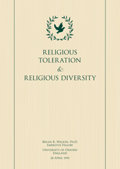Buddhism stands out as a major example of a religion which challenges the tacit assumption that a religion is necessarily monotheistic. Buddhism is not a system of monotheistic belief, and even in those branches of Buddhism in which there is an emphatic commitment to the idea of the Buddha himself as a saviour, for example in the Jodoshu and Jodoshinshu Pure Land sects in Japan, this conception falls short of regarding the Buddha as a creator-god. Buddhism in general does not deny the existence and activity of a variety of gods, and whilst they may in some Buddhist sects be the object of veneration and propitiation, they are accorded no essential role in the scheme of things as set forth in Buddhist teachings, and are indeed, like humans, regarded as being subject to the laws of karma and reincarnation. To illustrate the character of Buddhism, a brief outline of the teachings of Theravada Buddhism, the Buddhism of Sri Lanka, Burma, Thailand, and Cambodia, which is generally regarded by western scholars as the oldest tradition, now follows.
XIV. Diversity among Religions: Buddhism

Scientology, Social Science and the Definition of Religion
by James A. Beckford, Professor of Sociology, University of Warwick, England

Social Change and New Religious Movements
by Bryan R. Wilson,
Emeritus Fellow in Sociology, Oxford University

The Church of Scientology
by Juha Pentikäinen, Marja Pentikäinen, University of Helsinki, Finland

The Relationship Between Scientology and Other Religions
by Fumio Sawada, Eighth holder of the secrets of Yu-itsu Shinto, the oldest religion in Japan; President, Ahlul-Bait Center

The Religious Nature of Scientology
by Geoffrey Parrinder, Methodist minister, Professor, Comparative Study of Religions, University of London

Religious Philosophy, Religion and Church
by G.C. Oosthuizen, Professor of Science of Religion, University of Durban-Westville, Natal, South Africa

Scientology a New Religion
by M. Darrol Bryant, Department of Religious Studies, Renison College, University of Waterloo, Ontario, Canada

Apostates and New Religious Movements
by Bryan R. Wilson,
Emeritus Fellow in Sociology, Oxford University

Scientology: An Analysis and Comparison of its Religious Systems and Doctrines
by Bryan R. Wilson,
Emeritus Fellow in Sociology, Oxford University

The Reliability of Apostate Testimony About New Religious Movements
by Lonnie D. Kliever Ph.D., Professor of Religious Studies

The Sea Organization and its Role Within the Church of Scientology
by Frank K. Flinn Ph.D. Adjunct Professor in Religious Studies

Brief Analyses of the Religious Nature of Scientology
by J. Gordon Melton, Baylor University, Samuel Hill, Gary Bouma, Irving Hexham

Congregational Services of the Church of Scientology
by Bryan R. Wilson,
Emeritus Fellow in Sociology, Oxford University

Is Scientology A Religion?
by Alan W. Black, Associate Professor of Sociology, University of New England, Armidale, New South Wales, Australia

Is Scientology a Religion?
by Dean M. Kelley, National Council of Churches

Religious Toleration & Religious Diversity
by Bryan R. Wilson,
Emeritus Fellow in Sociology, Oxford University

Scientology A Religion In South Africa
by David Chidester, Professor of Comparative Religion, University of Cape Town, South Africa

Scientology: A True Religion
by Urbano Alonso Galan, Professor of Philosophy and Theology, Gregorian University of Rome

Scientology: A Way of Spiritual Self-Identification
by Michael Sivertsev, Moscow Academy of Sciences

Scientology: A Worshipping Community
by Lonnie D. Kliever, Southern Methodist University, Dallas, Texas

Scientology and Contemporary Definitions of Religion in the Social Sciences
by Alejandro Frigerio, Professor of Sociology, Catholic University of Argentina, Buenos Aires

Scientology and Islam an Analogous Study
by Fumio Sawada, Eighth holder of the secrets of Yu-itsu Shinto, the oldest religion in Japan; President, Ahlul-Bait Center

Scientology and Religion
by Christiaan Vonck, Rector, Faculty for Comparative Study of Religion, Antwerp, Belgium

Scientology: A Comparison with Religions of the East and West
by Per-Arne Berglie, Professor of History of Religion, University of Stockholm

Scientology Its Cosmology, Anthropology, System of Ethics and Methodologies
by Régis Dericquebourg, Professor of Sociology of Religion, University of Lille III, France

Scientology – Its Historical-Morphological Frame
by Dario Sabbatucci, Professor of History of Religions, University of Rome

Scientology: Its True Nature
by Harri Heino, Professor of Theology, University of Tampere, Finland

Scientology: The Marks of Religion
by Frank K. Flinn, Adjunct Professor of Religious Studies Washington University

